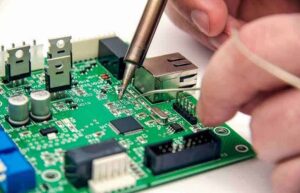
A Demat account, also known as a dematerialized account, is a type of account that allows you to keep firm shares and securities electronically. In a Demat account, you can keep dematerialized securities such as stocks, mutual funds, bonds, exchange-traded funds (ETFs), etc. There are many investment apps to choose from when creating one’s Demat account, enabling you to make investments in the market.
Shares are purchased and held in a Demat Account while online trading, making it easier for customers to trade. A Demat Account consolidates all of an individual’s investments in stocks, government securities, exchange-traded funds, bonds, and mutual funds.
Demat enhanced the digitalization of the Indian stock exchange and prompted SEBI to improve monitoring. Furthermore, the Demat account reduced the risks of storing, theft, damage, and malpractices by storing stocks electronically. In 5 minutes, you may start a Demat account online. However, the end-to-end digital method has aided in the spread of Demat, which has increased dramatically since the outbreak.
What is an Investment?
Investment is the process of acquiring an asset to profit from it. To produce income from an asset, either regular income or asset appreciation can be used. The growth in the value of an asset over time is referred to as appreciation.
When an asset is purchased for investment purposes, the investor will not consume it. Instead, the investor will use it to build profit. The primary goal of investing is to buy an asset today and sell it at a more excellent price later.
In the market, there are numerous types of investments available. The most popular stocks or equities, real estate, fixed deposits, gold, and real estate. Other well-known investment options include mutual funds, the Public Provident Fund, government bonds, corporate bonds, exchange-traded funds, and the National Pension Scheme, which can be operated through any investment app. Each varies based on the returns they offer, level of risk, tenure, taxation, and whether the returns are guaranteed or market-linked.
Cost-involved in a Demat account
There are charges For a Demat account, like safety costs (custodian fee), annual maintenance fees, and transaction fees. For example, Kotak Securities provides stock trading accounts and Demat accounts. When trading with Kotak Securities, the customer is responsible for all costs, commissions, and taxes. The charges for the Demat account and trading commission rates at Kotak Securities are detailed belIn addition, too. To open a Kotak Securities account, you must pay account opening and annual maintenance fees (AMC).
Kinds of Demat Accounts
One must know the various sorts of Demat accounts and why they are categorized. It will help understand the market and lead to increased stock market involvement.
Regular Demat account
For investors based in India, a standard Demat account is required. The account is appropriate for those who only deal in equity shares. The shares purchased are kept in digital format in the account. With the help of investment apps, one can use the Demat account to buy and sell stocks. There is no need to maintain a standard Demat account if you intend to trade futures and options. It is because futures and options have an expiry date and do not need to be stored.
SEBI recently introduced a new type of Demat account known as the Basic Services Demat Account (BSDA). It is comparable to a standard Demat account, except for no maintenance fees if holding less than Rs 50,000. The charges for holdings between Rs 50,000 and Rs 2 lakh are Rs 100 per annum. The BSDA was established to increase financial inclusion and assist investors.
Repatriable Demat account
Non-resident Indians can open this form of Demat account (NRIs). It enables the transfer of wealth overseas. However, such forms of Demat accounts necessitate a Non-Resident External (NRE) bank account. If you become an NRI, you must close the Demat account you held as a resident Indian. After that, you can move the shares to a Non-Resident Ordinary (NRO) Demat account. If you want to sell the shares, a repatriation restriction takes effect. During a calendar year (January–December), you are permitted to repatriate a maximum of USD 1 million.
Non-repatriable Demat account
This is another sort of Demat account for NRIs. You cannot, however, move funds outside of the country. In addition, you must have an NRO bank account linked to your Demat account.
One can choose which Demat account they would like to get from the above types and start their investment journey. These types of Demat account is also available through most investment apps.







